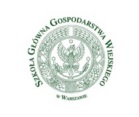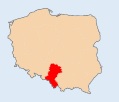Summary
The program “Owca Plus” was established in 2008 as a public initiative in order to preserve, protect and restore the biodiversity in valuable natural areas, through extensive grazing of sheep in the meadow-pasture areas of the Śląskie Voivodeship. The program is coordinated by the Marshal's Office of the Śląskie Voivodeship (Local Government). The program currently runs as a long term initiative 2015-2020 with a total budget exceeding 1 mio. Euro. Each year an open call is organized in which non-profit organizations (e.g. foundations, associations, NGO cooperatives) and other eligible parties present offers to arrange grazing on specific areas of land by subcontracted farmers, who provide animals (sheep and goats) and plots of land for grazing. The list of recommended areas offered for grazing by the program includes 168 plots in the Beskids and 73 plots of the KrakówCzęstochowa Upland. The bidding organizations assure grazing on the area covering at least 550 ha of land in Beskids or at least 100 ha in Kraków-Częstochowa Upland. There are two organisations representing over 100 farmers, grazing about 4-6 thousand animals on over 600 hectares of land. The program brings measurable environmental, cultural and economic benefits. The outcomes of the environmental monitoring showed significant improvement of biodiversity. In the economic aspect, the tourist infrastructure was modernized and expanded to improve the accessibility and attractiveness of the areas included in the program. Thanks to the implementation of the program, the sheep population increased and the availability of meat and sheep products expanded. The program has indirectly contributed also to the development of tourism (by an increase in the number of entities offering accommodation, meals, employment in tourist services, trade and transport).
Objectives
− Preservation, protection and restoration of the biodiversity in valuable natural areas, based on extensive grazing of sheep and goats while maintaining animal welfare− Maintenance and improvement of valuable natural habitats and species, depending on agricultural, especially pastoral use
− Restoration of valuable natural and landscape areas for grazing
− Protection of local breeds of farm animals
− Maintenance and restoration of architecture associated with traditional pastoral grazing
− Protection of cultural heritage, supporting and sustaining the traditions, customs and other related elements of folk culture of pastoralism

Data and Facts - Contract
Indirect effects:
- Soil quality (and health) - grazing promotes grass propagation, prevents soil erosion, and trampling and leaving droppings stimulate turf development
- Recreational access - the presence of animals on pastures increases the aesthetic value of the landscape, which contributes to increasing the tourist attractiveness of the region
- Rural viability and vitality - the program brings measurable economic and social benefits, which contribute to rural viability and vitality.
Participation:
• Number of farms: Every year the program is realized by 2 organisations representing over 100 farmers.
• Area of implementation: grazing about 4-6 thousand animals on 600-700 hectares of land
Involved parties: The contracting parties are the NGOs whose statutory activities are consistent with the assumptions of the program or legal entities which provide extension services. The program is usually contracted with 2 organizations representing over 100 farmers.
Management requirements for farmers: The program is addressed to breeders of sheep and goats in Śląskie Region. Animals registered for the program must stay on the farm throughout the entire grazing period – end of April – September. The program involves grazing animals with a stocking of 0.5 - 1.0 LU/ ha. It is preferred that in the Beskids, grazing takes place on pastures situated 550 m above sea level. Animals must be kept in compliance with animal welfare norms (e.g. have assured access to water, protection against predators). Animals must be registered in the database of the Agency for Restructuring and Modernization of Agriculture. Farmers, besides grazing, are required to perform special care treatments planned for individual plots (eg. felling trees and shrubs, mowing some parts of the plots) and where necessary constructing shepherd infrastructure (shepherds' huts, sheep fence).
On the other hand the contracted NGO organizations are obliged to promote natural and landscape values and tourism, promote sheep and goat products and popularize folk and pastoral culture.
Controls/monitoring: The program implementation control is carried out for all beneficiaries. The audit covers effectiveness, reliability and quality of tasks implementation as well as environmental monitoring of grazed plots.
Conditions of participation: The contracting parties could be NGOs whose statutory activities are consistent with the assumptions of the program, and legal entities which provide extension services. The tasks of the program must be implemented in certain recommended areas (168 plots in Beskids and 73 plots in Kraków-Częstochowa Upland) indicated in the program description document.
Risk/uncertainties of participants: The main risk of the associations which take part in the call is that the sub-contracted farmers/other parties will not fulfil the requirement of the contract concerning for example number of animals kept for the grazing season or animal density etc.
Funding/Payments: The funds come from the Local Government Budget of Śląskie Voivedship. The amount allocated to the program is planned for the programming period (currently 2015-2020). Annually an open call is organized in which NGOs, associations, cooperatives and other eligible parties offer the required number of sheep and goats made available by subcontracted farmers for grazing. The payment is made to contracted NGOs organizations, and then those organisations transfer funds to the sub-contracted parties (farmers, producer groups). The amount of subsidy is fixed and relates to size of the area offered for grazing (ca. 100 thousand euro for the area of minimum 550 ha in Beskids, and/or 15 thousand euro for minimum 100 ha area in Kraków-Częstochowa Upland.

Problem description
The gradual disappearance of sheep grazing observed over the years due to a significant reduction in the demand for sheep products (wool, cheese, meat) almost irreversibly affected the overgrowing of naturally valuable areas of the Beskids and the Kraków-Częstochowa Upland with expansive plant species and self-sown trees.
This, in turn, led to the impoverishment of nature that may cause irreversible changes in the traditional landscape, depriving it of, among others tourist values. The program, introduced in 2008, responds to the needs for preservation of natural and cultural heritage of the Śląskie Voivodeship, and in particular for restoration of pastoral economy in the Beskids and Kraków-Częstochowa Upland, in order to stop adverse natural changes, as well as to protect the cultural heritage of these areas.
Context features
Landscape and climate: The Beskids are medium-high mountains within 800-1400 m above sea level. The landscape is characteristic for this type of mountains overgrown with beech, oak, spruce, pine and fir, as well as scythe in the highest parts. In the Beskids, there is a temperate mountain climate with continental features. It is characterized by high weather variability, significant rainfall and strong and frequent winds. Precipitation in the Beskids sometimes exceeds 1200 mm per year. The average annual temperature ranges from 5.4 C in the dorsal parts to 8.5 C in the valley of the Olza River. The Kraków-Częstochowa Upland has a landscape that is a bit different. The area rises to a height of about 300 - 500m above sea level and 20% is covered by forests. In former times the area was often the bottom of the sea, which created many layers of rocks (dolomites, marls, limestones). Characteristic for the landscape are numerous calcareous outliers rising above the surface, rising to a height of several dozen meters. The climate of the highlands is milder than the climate of the mountainous Beskids. One of the most important factors influencing the landscape and nature of both regions was and still is pastoralism. Sheep graze in beautiful mountain halls and areas that, due to natural conditions (e.g. slope), cannot be cultivated. Shepherds' buildings, sheep fences and shepherd's huts are typical elements of the landscape.
Farm structure: Agriculture, due to natural conditions, is not of great importance in the region of the Beskids and the Kraków-Częstochowa Upland. The average farm size is 4.5 ha, which in consequence makes the agriculture of the Śląskie Voivodeship one of the most fragmented in Poland. Tourism, which is becoming an important source of income for local people, is starting to play an increasingly important role in the economy of these regions. Sheep breeding is also important, which after a drastic period of decline, is slowly recovering in these areas, also due to the Sheep Plus program.

Success or Failure?
The program “Owca Plus” represents a successful contract solution. The number of participants increased over the years. The program is implemented continuously since 2008. The program brings measurable environmental, cultural and economic benefits. The outcomes of the environmental monitoring showed significant improvement of biodiversity in natural habitats. From economic perspective, the tourist infrastructure was modernized and expanded to improve the accessibility and attractiveness of the areas included in the program. Thanks to the implementation of the program, the sheep population increased and the availability of meat and sheep products expanded. Indirectly the program also contributed to the development of tourism (by an increase in the number of entities offering accommodation, meals, employment in tourist services, trade and transport).
Reasons for success :
• Farmers receive financial remunaration for grazing animals on specific areas (plots), which preserves pastoral traditions and cultivate this culture in the region.
• High share of grasslands, tourist attractiveness of the region as well as fragmented, extensive structure of agriculture favours the implementation of the program;
• NGOs raise funds for statutory activities and demonstrate activity in priority areas.
• Self-government of the Province, by financing this program, contributes to preservation, protection and restoration of the biodiversity in the most valuable natural areas of Beskids and KrakówCzęstochowa Upland, and improvement of economic and tourist activation of the Ślaskie Region
SWOT analysis
Main Strengths
1. The program fits into the traditions and culture of the region2. Farmers have the possibility of co-financing the construction of shepherd infrastructure and the conditions for ensuring animal welfare on pastures
3. The program brings measurable environmental, cultural and economic benefits
Main Weaknesses
1. Some administrative burden2. Some plots are distant from areas where farms and animals are located - it is necessary to transport and monitor animals, and protect them against predators.
Main Opportunities
1. The development of tourism promotes the preservation of the traditional pastoral landscape2. It is an opportunity for the development of traditional and regional products – which justifies the continuation of the program
Main Threats
1. Possibly loosing interests of NGO´s due to administrative requirements and the risks associated with contracting farmers

Information/contact: https://www.slaskie.pl/content/program-owca-plus

COLLECTIVE and LAND TENURE
The contract is between: public organization (Śląskie Voivodenship Government) - NGO (association) - farmer. Some areas which are subject of the contract are rented by farmers.
PUBLIC GOODS
Farm animal health and welfare
Landscape and scenery
Biodiversity / (Farmland) biodiversity
Cultural heritage
LOCATION
Polska

Śląskie province (PL22) Beskidy, KrakówCzęstochowa Upland
CONTRACT
Contract conclusion:
Written agreement
Payment mechanism:
Incentive payments
Funding/Payments:
Local Government (without EU-funding)
Start of the program:
2008
End:
still running
Feel free to contact us for any further informations.
CONTACT USLegal notice: The compilation of the information provided in the factsheets has been done to our best knowledge. Neither the authors nor the contact persons of the presented cases may be held responsible for the use which may be made of the information contained therein.